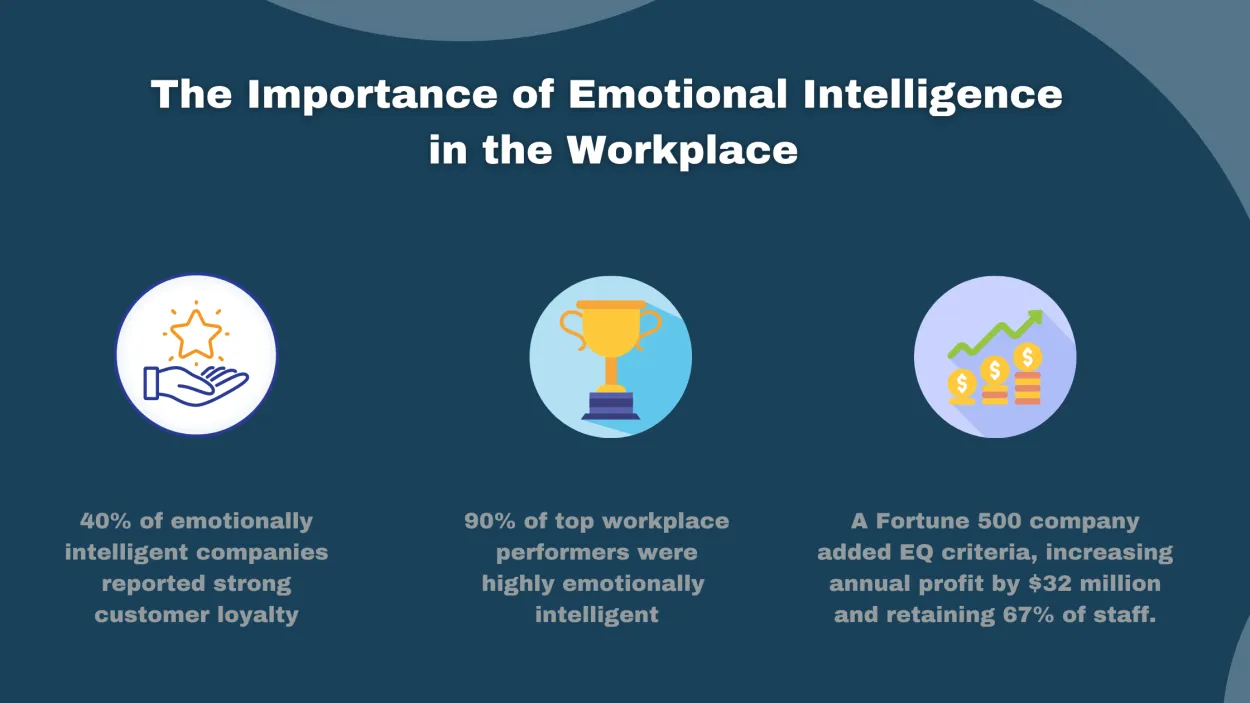Emotional intelligence plays a crucial role in the contemporary workplace, affecting overall job performance and success. This article explores the significance of emotional intelligence in the professional environment and examines how individuals with high emotional intelligence tend to excel in collaboration, leadership, and conflict resolution.
Recognizing and Managing Emotions
In the fast-paced and competitive environment of the modern workplace, emotional intelligence plays a vital role in employee success and overall organizational effectiveness. Emotional intelligence refers to the ability to recognize and manage both one’s own emotions and the emotions of others.
Recognizing emotions involves being aware of your own feelings as well as understanding the emotions expressed by colleagues and team members. This awareness allows for better communication, empathy, and relationship building, which are crucial for collaboration and teamwork.
Managing emotions entails effectively handling challenging situations, conflicts, and stress in a constructive manner. This skill enables individuals to stay calm, maintain focus, and make rational decisions even under pressure. It also promotes a positive work environment and enhances productivity and job satisfaction.
Developing emotional intelligence in the workplace can be achieved through training programs and self-reflection. By fostering emotional intelligence, organizations can improve overall employee well-being, reduce conflicts, and enhance interpersonal dynamics.
Developing Empathy and Understanding
In today’s fast-paced and competitive work environment, emotional intelligence plays a crucial role in fostering positive relationships and promoting a harmonious workplace. Emotional intelligence encompasses various key skills, one of which is empathy. Empathy allows individuals to understand and share the feelings of others, creating a supportive and inclusive work atmosphere.
When employees develop empathy, they become more attuned to the needs and perspectives of their colleagues. This understanding leads to better communication and collaboration, as individuals feel valued and heard. Empathy also helps resolve conflicts effectively by promoting open dialogue and compromise.
Moreover, fostering empathy in the workplace contributes to increased employee engagement and job satisfaction. When team members feel understood and empathized with, they are more likely to be motivated, productive, and innovative. Empathy also strengthens teamwork, as it encourages individuals to work together and support each other’s growth and development.
Developing empathy and understanding can be achieved through various strategies. First and foremost, active listening is essential in building empathy. By giving undivided attention to others and acknowledging their emotions, individuals can foster deeper connections and gain valuable insights into their colleagues’ experiences.
Another way to develop empathy is by engaging in perspective-taking exercises. Encouraging employees to consider different viewpoints and stepping into others’ shoes enhances their ability to understand and relate to different perspectives. This cultivates a culture of empathy and tolerance within the organization.
Diversity and inclusion initiatives also play a crucial role in promoting empathy in the workplace. By embracing diversity and creating an environment that values and respects differences, organizations can foster empathy among employees. This inclusivity fosters a sense of belonging, encourages empathy, and enriches the overall work experience.
In conclusion, developing empathy and understanding is vital for fostering positive relationships, effective communication, and collaboration in the workplace. By promoting empathy, organizations can create a supportive and inclusive environment where employees feel valued and motivated. Investing in emotional intelligence development is an investment in the success and well-being of both individuals and the organization as a whole.
Enhancing Interpersonal Relationships
In today’s fast-paced and demanding workplace, strong interpersonal relationships are essential for a harmonious and productive environment. One key factor that contributes to these relationships is emotional intelligence.
Emotional intelligence refers to the ability to recognize, understand, and regulate our own emotions and those of others. In the workplace, this skill plays a crucial role in improving communication, resolving conflicts, and fostering collaboration.
By enhancing emotional intelligence, individuals can better navigate challenging situations and build deeper connections with their colleagues. It allows them to empathize with others, showing care and concern, which leads to a more supportive work environment.
Moreover, emotional intelligence helps in managing stress and controlling one’s own reactions in stressful situations. This contributes to the development of a positive and respectful workplace culture, where everyone feels valued and understood.
To improve emotional intelligence, individuals can engage in activities such as self-reflection, practicing active listening, and seeking feedback from others. Additionally, workshops and training programs can be implemented within organizations to enhance employees’ emotional intelligence skills.
Ultimately, by prioritizing emotional intelligence in the workplace, organizations can foster healthier relationships, improve teamwork, and boost overall productivity.
Conclusion
Emotional intelligence plays a crucial role in the workplace. It enables individuals to understand and manage their own emotions, as well as effectively navigate social interactions. By fostering empathy, communication, and conflict resolution skills, emotional intelligence positively impacts teamwork, productivity, and overall job satisfaction.




